Sophie Devine is living her childhood dream of being a professional athlete. In this episode of It's Personal, she tells Anika Moa how she manages as captain of the New Zealand women's cricket team, the White Ferns, while also living with Type 1 diabetes.
Follow It's Personal with Anika Moa on YouTube, Apple Podcasts, Spotify, iHeart or wherever you get your podcasts.
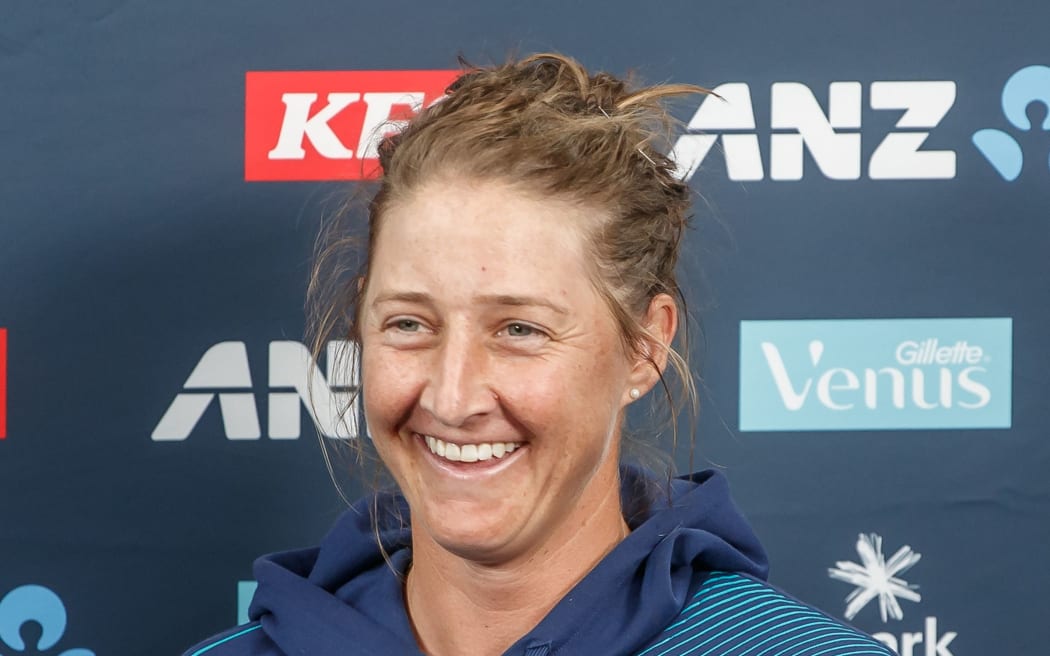
Sophie Devine, captain of the White Ferns Photo: PHOTOSPORT
Grassroots beginnings
"Like most kiwi kids, I just would be out as soon as the sun was up, playing sport, have to go to school, come back, be playing any sort of sport I can get. I was a little psycho. Like, I just loved getting stuck into it. And from a very young age, probably a little bit too competitive. Like, I remember, I wouldn't have been older than seven or eight, and me and one of my mates had figured out pretty early playing hockey on the grass... one of us would go in where all the kids would swarm around the ball and the other one would just wait by the goal. We'd get the ball, whack it up the top, score goals. We'd be scoring 10 / 15 goals every weekend."
"Yeah, there was no other option. I was going to play sport for New Zealand. I didn't care what sport it was or whatever. That was just it. I couldn't see myself doing anything else."
Getting the call up to represent New Zealand
"I still remember it as clear as day, being at high school and getting the phone call, which, I mean, you're not supposed to have your phones in class, but stuff that. And I remember leaving and having the phone call with the coach at the time and school was a write off after that. I remember just running home, being like, shouting and hollering and stuff like that. It's an incredible honour. It's real cliche but it's honestly like the best feeling ever to have that recognition. And I would be nowhere near here if it wasn't for coaches, mum and dad, brothers and sisters, like umpires, scorers. There's so many people that have impacted me and have allowed me to end up where I am now."
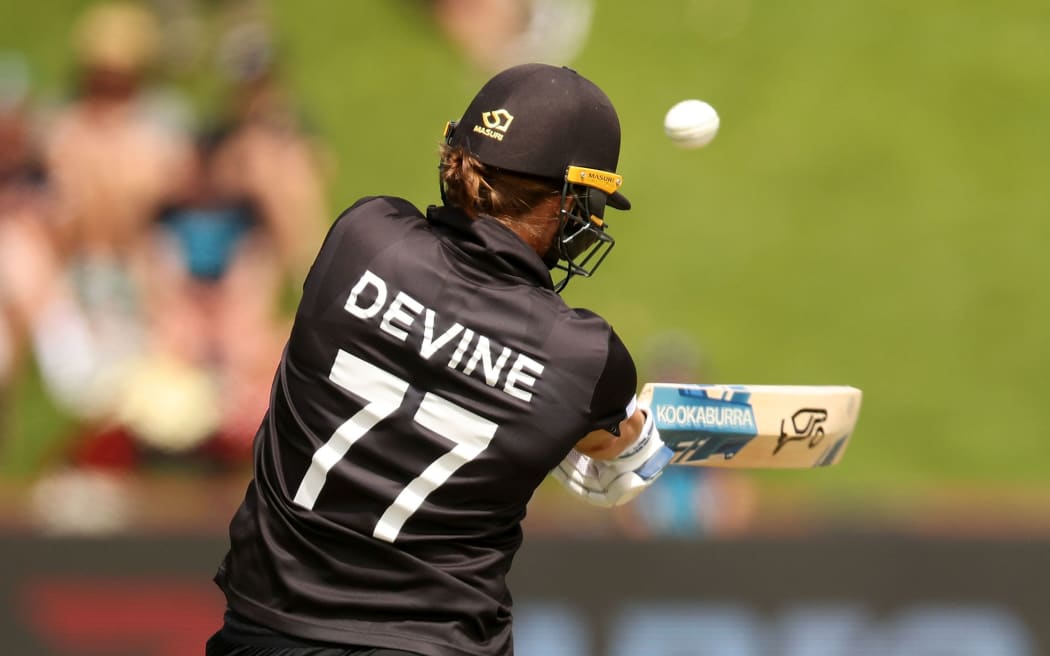
"I was a little psycho" says Devine of her competitive nature Photo: PHOTOSPORT
On being captain of the White Ferns
"I'd like to think I do a good job, but I think the great thing about it is there's always something to learn. You can always get better. There's always things that you feel that you can grow and evolve and develop, which I think is really exciting for me."
"Losses suck. Like, I hate losing. I hate it. So it's always hard and especially with [being] captain. You do feel that extra sense of responsibility and there's times where you're sitting in your room and you're replaying the game ball by ball. Cricket can be a bloody long game sometimes, so you're sort of having to replay it a fair bit. But, I think that's something that I've learned, probably as captain over the last couple of years is you can't dwell on it because cricket is a pretty shitty sport like that. There's going to be more crap times, low times than there is good times, but it's those good times that keep you hooked on it and wanting to keep playing."
"It's getting that balance right in terms of you are the captain and you are the leader, but you're also making sure that you keep looking forward and keeping the group positive and moving forward."
"It's so cliche but I'd so rather the team win than me go really well. It sort of is a bit of an empty feeling. It's a funny one, cricket. Like, say I score 100 runs, but the team loses. It's like, oh, this is shit."
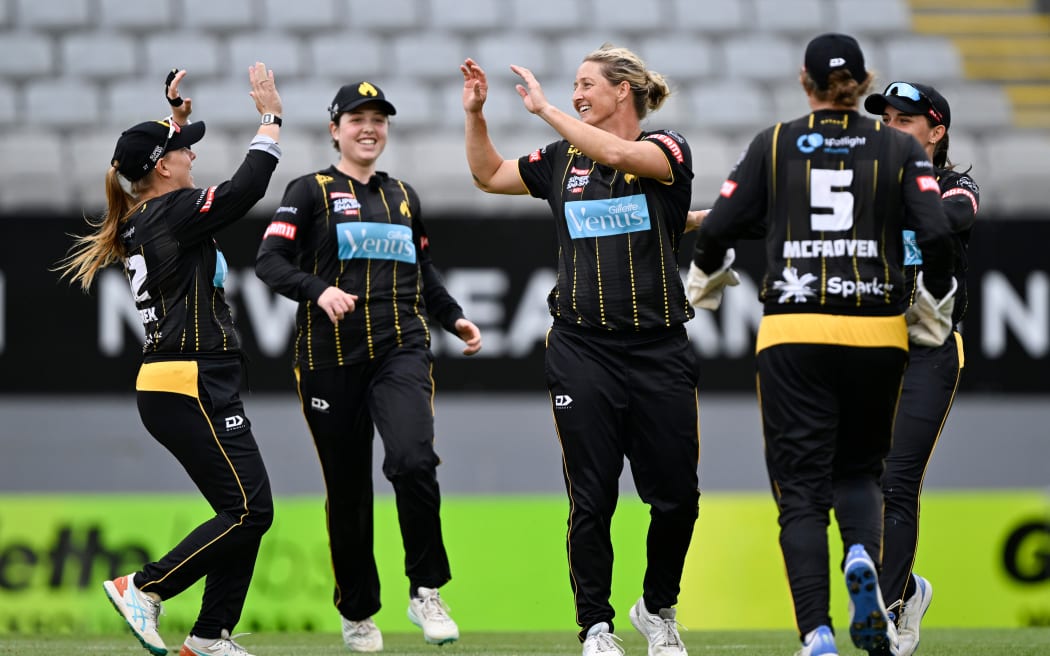
Sophie said: "It's an empty feeling" if she goes well but the team loses. Photo: Andrew Cornaga/www.photosport.nz
On doing it all with Type 1 Diabetes
"So I was 15 when I was diagnosed. I had all the classic symptoms at the time, I lost a heap of weight, I was eating heaps, I was sleeping heaps, I was going toilet heaps, all classic symptoms.
"I remember going into school one day, walking into the classroom and I couldn't see the whiteboard. Everything was sort of fuzzy. And I was like, ah, that's a bit weird. So I remember getting home and being like, mum, I can't see the whiteboard. And she's like, fine, I guess I'll take you to the bloody doctors."
"Within half an hour of the doctors doing the test and the urine test and stuff they're like, yeah, we're pretty sure you've got diabetes."
"I remember sitting in the car with mum and we both just bawling our eyes out, just like, crying, crying. And mum was obviously really apologetic. Like, I'm sorry, I should have listened, or I should have known.
"It was emotional for about ten minutes and we're all there, snot blowing out and tears and stuff. And then mum was like, right, okay, that's it. No more sulking. Like, we know what it is now. Get to hospital, we'll learn about it, but we don't use it as an excuse. We don't piss and moan about it. Let's crack on. And literally from that point, it was, okay, right, let's get on with it, sort of thing."
Advice for those newly diagnosed
"I think something that really stuck out for me was that every diabetic is different. How you react to different foods, what insulin is going to do to your body, how exercise is going to change your sugars is going to be completely different to mine. And it could be different day on day. I am so lucky. In the White Ferns, I've got Jess Kerr, who's also a Type 1 Diabetic. So we literally talk in our secret language. It's so nice just to be able to talk to someone else who has it, knows what you're going through. Find someone that you can vent, because it can be so f***ing frustrating.
On controlling blood sugars
"People say, 'Oh, do you have your diabetes under control?' and I'm like, 'Well, what does that even mean?'. I think I do and then there's days where I don't go below ten and I'm like, well, what do you want me to do? Like, lie in bed and not do anything and not eat or whatever. There's times where I get really frustrated with that, where sometimes I'm just like, I actually don't have a clue what my diabetes is doing. I could do exactly the same thing, eat the same, inject the same exercise, everything's exactly the same. But my sugars are, like, through the roof and I'm just going to go like that and you feel like shit."
"It's a constant juggle to try and maintain that. And if you are, it's like, 'Woohoo, I'm great'. And then when you're not, you're sort of like, 'Oh, shit, I've not failed, but it sucks'. You're sort of like, 'Okay, I haven't quite got this right yet'."
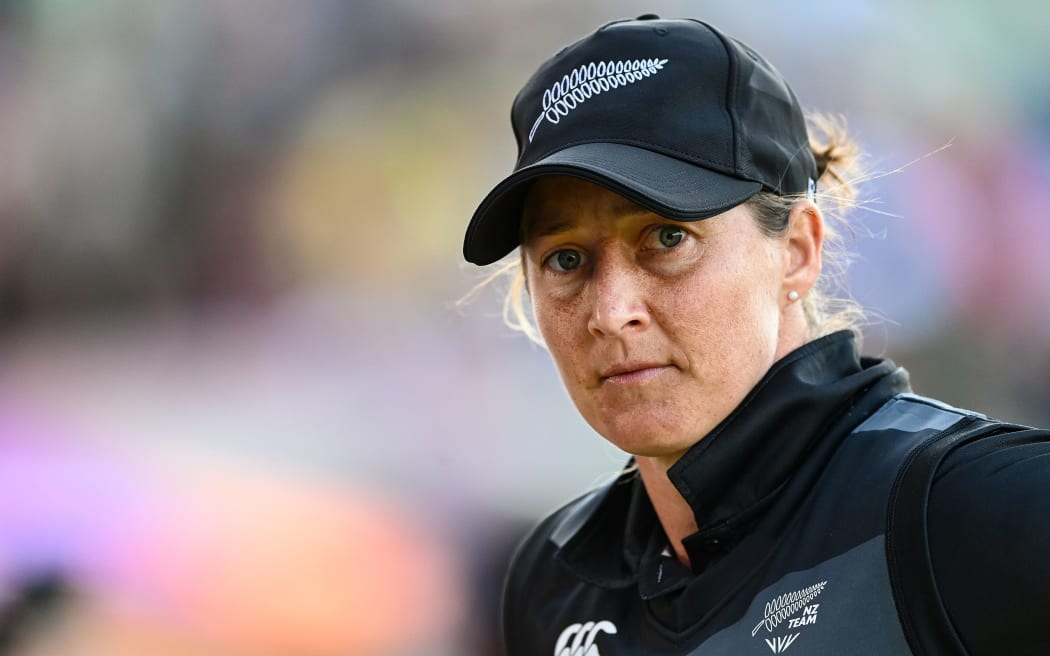
Maintaining good health is a "constant juggle" for Devine who has Type 1 diabetes. Photo: PHOTOSPORT
Going hypo on the pitch
"I probably learned the hard way. I was like, nah, I'm not coming off. I'll be fine, I'll be fine. And then I was like, I can see three cricket balls. I was like, I'll just shove, literally shove, jelly beans and a scoffed banana. And I was like, yep, that's fine. Got back out there and just kept going low. Kept going low. I was like, okay, I actually need to step off the field now and actually take some time and let the sugars do its thing. Let the carbs sort of kick in."
"Whereas now I'm probably a little bit older and smarter to be like, yes, I'm a little bit low. I'll just sit off for 5 / 10 minutes, have a banana, have some jelly beans, have a drink of water, let that kick in, and then back out there."
The toll of Type 1 diabetes
"You just get sick of it, you just get fed up [and] you want to break from it. That's pretty much the best way to describe it. You just want to break up with diabetes and have a couple of days where you're not having to inject or you're not having to check your sugars or being wary of what you eat."
"That's where I probably try and give myself a bit of kick up the bum, where I'm like, actually, I can still see, I can still hear. I've still got my arms, my legs. I can still move around. I can still be active. There's people that are in a lot worse position than I am, so be grateful. But there's also times where you do you just want to sit in your grumpiness and sulk and piss and moan and things like that. I think that's only natural. So it's about being okay with it.
On its effect on her mental health
"I think certainly sometimes when I've had low patches or dark times, that's just another thing that weighs you down. Because I've still got diabetes, it's still kicking my ass. It's still there. It's not going anywhere. So at times it can certainly be a bit of a downer".
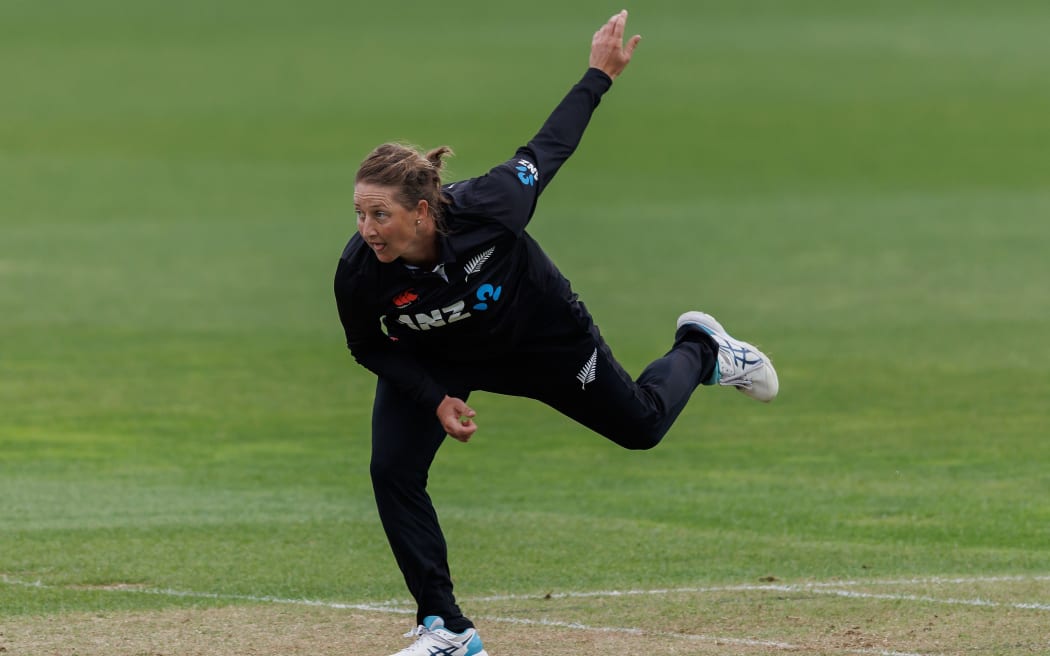
Sophie took a step back from professional cricket to concentrate on her mental health Photo: PHOTOSPORTS
On stepping away from cricket for her mental health
So I've obviously, been diagnosed with depression. Well, previously and had been managing it with antidepressants and stuff like that and been going all right. And then obviously through Covid and stuff like that, probably, yeah, just sort of those things came back and I guess when you talk about depression and now people talk about the black dog or the black cloud and things like that, that it's always sort of looming. That was just happening again. I just felt that something was always there on my shoulder, that it's just something you can't shake. I hated being around people, really anxious in big groups or with people or in situations that I wasn't prepared for. So if I bumped into someone that I hadn't planned on, or someone asked me to speak at a cricket event or something, it freaked me out and certainly have had my fair share of panic attacks and things like that. So with all that combined, I knew that the best thing for me was to remove myself from that environment and just literally say, right, I just need to focus on myself here and getting into good routines and things like that. So stepping away was bloody hard, but necessary."
"I didn't know how to talk about it. And I didn't want people to be like, oh, I don't know how to be around you now. And that was something I really struggled with. People sometimes don't know how to behave around it. If someone says, oh, I'm depressed, people are like, 'Oh, okay, there, there. It'll be okay. You'll be better soon'. And sometimes it's not. Sometimes it's literally just a case of being like, that really sucks for you. But I'm here if you ever need to talk or if you want to go for a coffee. And that's certainly something I've probably taken out of it, because before this, I was like, how can you be depressed? What even is that? You, can't get out of bed? What's wrong with you? To me, I couldn't comprehend depression and what that meant. And then going through it and still going through it now, it's like there's days where I cannot get out of bed. And for me, that always wants to be outside doing things like, that's a huge warning sign that I don't want to see people. I don't want to talk. Low mood, grumpy."
Sophie's solution
"Stripping it back to routines. Absolutely. It's sleeping, eating, it's getting out in nature. And whether it's a walk or, just getting outside and moving the body, yoga was a big one for me, during that time. meditation, things like that.
Need to Talk? Free call or text 1737 any time to speak to a trained counsellor, for any reason.
Lifeline: 0800 543 354 or text HELP to 4357
Suicide Crisis Helpline: 0508 828 865 / 0508 TAUTOKO (24/7). This is a service for people who may be thinking about suicide, or those who are concerned about family or friends.
Depression Helpline: 0800 111 757 (24/7) or text 4202
Samaritans: 0800 726 666 (24/7)
Youthline: 0800 376 633 (24/7) or free text 234 (8am-12am), or email talk@youthline.co.nz
What's Up: free counselling for 5 to 19 years old, online chat 11am-10.30pm 7days/week or free phone 0800 WHATSUP / 0800 9428 787 11am-11pm
Asian Family Services: 0800 862 342 Monday to Friday 9am to 8pm or text 832 Monday to Friday 9am - 5pm. Languages spoken: Mandarin, Cantonese, Korean, Vietnamese, Thai, Japanese, Hindi, Gujarati, Marathi and English.
Rural Support Trust Helpline: 0800 787 254
Healthline: 0800 611 116

